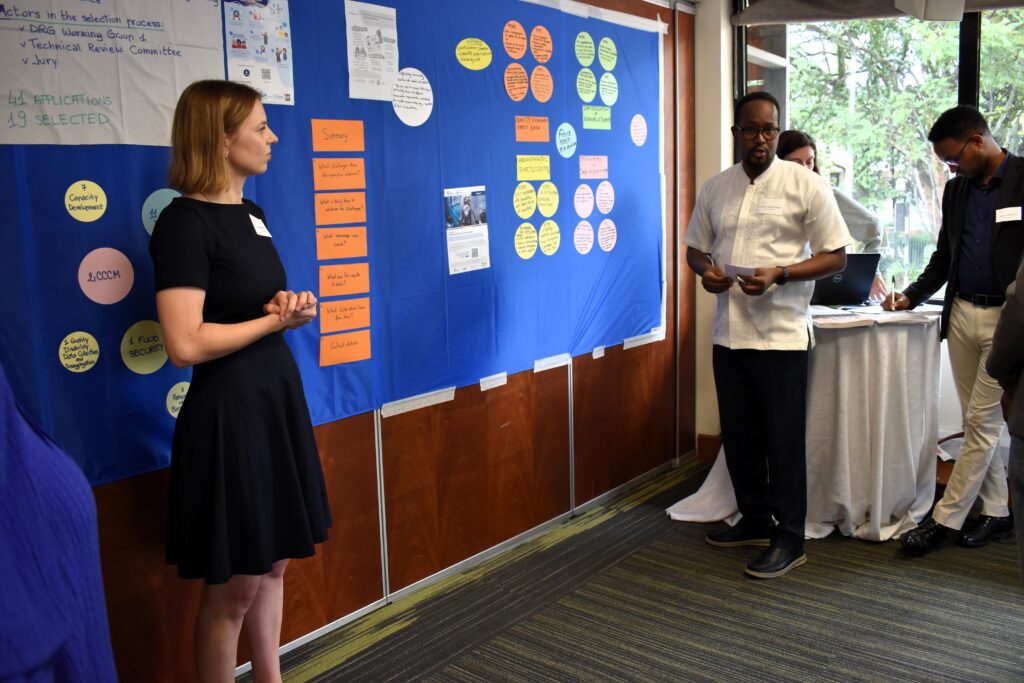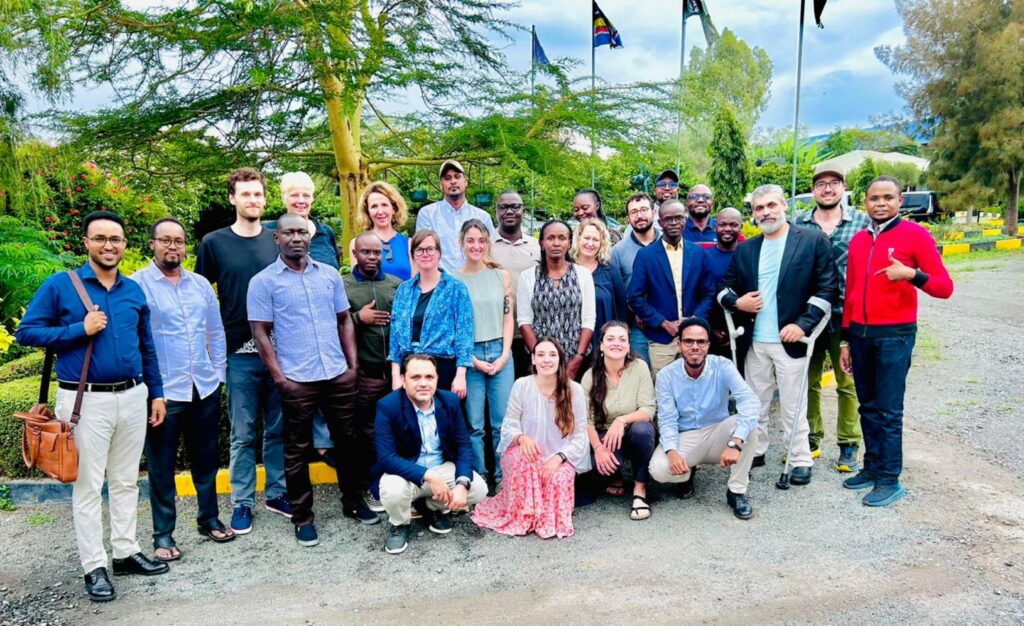Project Workshop in Kenya: Exchange on Disability-Inclusive Humanitarian Action
Category
General IASC-Guidelines Pilot Countries
© Heidi Villikka / HI
At the end of April, HI’s Phase3-Leave No One Behind and From Guidelines To Action project teams met in Kenya to exchange on current activities, achievements and lessons learned. Over four intensive days (22.-25.4.24), we discussed on disability-inclusion in humanitarian action and our steps towards building local technical support mechanisms, tool adaptions & trainings.
As both projects are in their final year of implementation, the workshop provided a fruitful forum for learning from each other, highlighting the achievements and deepening our understanding of the way forward.
The project country teams shared their best practices and lessons learned on strengthening and localising technical resources to operationalise the IASC Guidelines on Inclusion of Persons with Disabilities in Humanitarian Action. These practices were also shared with external stakeholders.
Sharing best practices with fellow humanitarians
On 24th of April, the project teams jointly organised a “Regional Practitioner Exchange on Disability Inclusive Humanitarian Action” in Nairobi to share our project findings with other humanitarian actor’s.
The event was opened with the opening words from Sabine Eismann from German Federal Foreign Office. During the event, HI’s country teams from South Sudan, Somalia & Somaliland, Uganda and Syria, as well as country and global inclusive humanitarian action experts presented various innovative and practical ways to operationalise the IASC Guidelines on Inclusion. The findings and successes presented covered the following three areas:
- Enhancing Evidence on inclusive programming: World Food Program (WFP)- Humanity & Inclusion (HI) Collaboration Research and Documentation of Good and Promising Practices
- Capacity Strengthening No1: Review, Adapt, Action and Learning Laboratory (RAAL) Methodology & Local Technical Support Mechanisms – Impact, Experience and Approach
- Capacity Strengthening No2: Guidance on adapting Protection and Food Security assessments and tools & Upcoming Training Packages on iWASH and iHealth
The event was built around a format that allowed for plenty of questioning and sharing. Special thanks to the participants for their engagement and useful comments.


